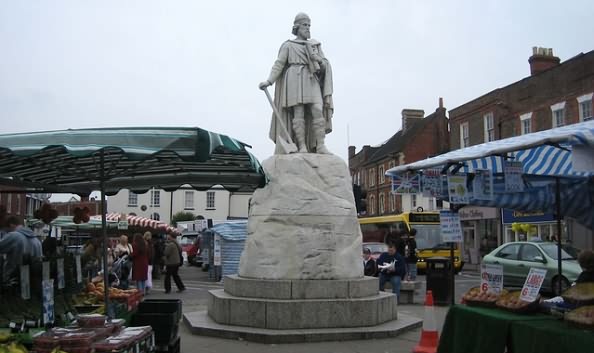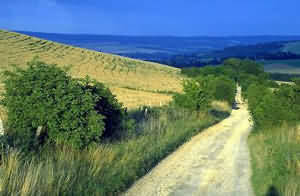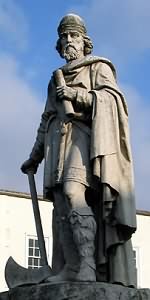 |
| The Local Time is Saturday, 27-Jul-2024 03:32:31 CEST |
Wantage Tourist Information |
|
|||
| YOU ARE HERE: Main Home Page > Places to See> Wantage |
|
|
|
|
 |
||||||||||||||||||||||||||||||||||||||||||||||||||||||||
|
||||||||||||||||||||||||||||||||||||||||||||||||||||||||
Wantage Tourist Information GuideWantage in Oxfordshire is a lovely small market town in the Vale of White Horse, and has a good range of shops and services, including plenty of places to eat and drink. Links with the past are very strong too and Wantage is a great place to visit to enjoy this historic part of England.The towns buildings are mostly 17th and 18th century with narrow cobbled streets and passages.
The King Alfred statue was commissioned by Lord Wantage, designed and carved in 1877 by Count Gleichen, (a cousin of Queen Victoria) it stands the town centre. On the base of the statue the following words are to be found:-
Winston Churchill, not usually reputed for his modesty, when being told that he must be the greatest Englishman that ever lived replied - "No! The greatest Englishman that ever lived was King Alfred". There are Iron Age hill forts, such as Segsbury Camp and Uffington Castle, Bronze Age burial mounds, Wayland's Smithy, one of the Britain's most impressive prehistoric tombs and the White Horse which gives the district its name. Wantage has a thriving social life with many clubs and local organisations. Music is important with a brass band in the first division and an operatic society. A month long festival of music and arts is held in June and July. There is a Dickensian Evening before Christmas when shops open late and the Town Mayor and Town Crier lead the townspeople and visitors around the town. John Betjeman, Poet Laureate, lived in the town for many years and wrote a number of poems about Wantage and the surrounding areas for example "Wantage Bells" and "On Leaving Wantage". A Betjeman Memorial Park with a statue of the poet and several displays of his better known works occupies a wooded area a short distance from Wantage Church. The origins of Wantage are lost in the mist of pre-history but pot sherds found by residents when digging their gardens betray the importance of Wantage as a Roman settlement. Nearby villa sites and burials confirm the significance of this evidence and an important Roman road ran south from Oxford through Frilford to Wantage. Wantage appears in the great Domesday survey of 1086. Its value was £61 and it was in the King's ownership until Richard I passed it to the Earl of Albemarle in 1190. The manor eventually passed to the Fitzwaryn family. The town developed at a slower rate than Abingdon, maintaining older fashions of architecture for a longer period than its neighbour. From the early 17th century, it became a large centre for the processing of leather with all the pollution and smells that this trade brought.
|
||||||||||||||||||||||||||||||||||||||||||||||||||||||||
|
||||||||||||||||||||||||||||||||||||||||||||||||||||||||
Wantage Tourist Information and |
||||||||||||||||||||||||||||||||||||||||||||||||||||||||
| This page last modifiedThursday, 11-Feb-2021 13:24:17 CET | ||||||||||||||||||||||||||||||||||||||||||||||||||||||||

 A
market is held every Saturday and Wednesday and is well worth a
visit. If you are a walker, then try the ancient Ridgeway National
Trail which is just 3.5 kilometres out of town.. In the town are
the Vale and Downland Museum in Church Street, the 13th century
parish church and the Market Square with its statue of
A
market is held every Saturday and Wednesday and is well worth a
visit. If you are a walker, then try the ancient Ridgeway National
Trail which is just 3.5 kilometres out of town.. In the town are
the Vale and Downland Museum in Church Street, the 13th century
parish church and the Market Square with its statue of  Alfred found learning dead and he restored it
Alfred found learning dead and he restored it